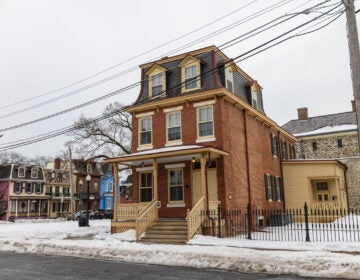New ‘renaissance school’ hailed as big step forward for Camden kids
-
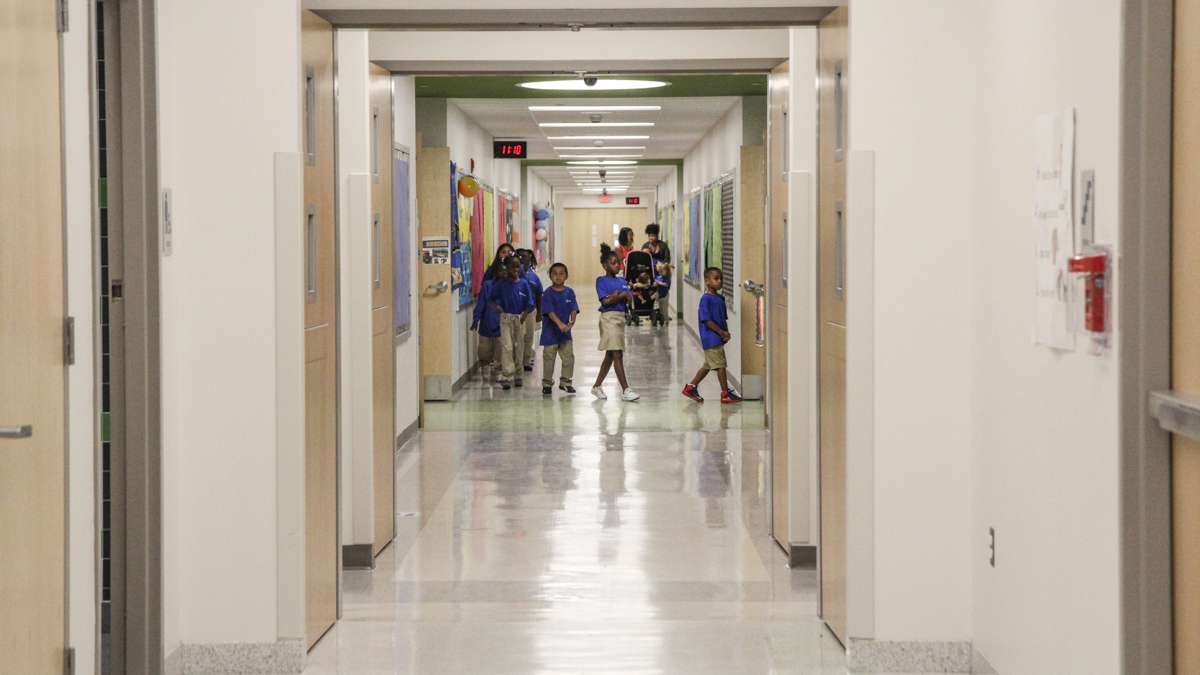
-
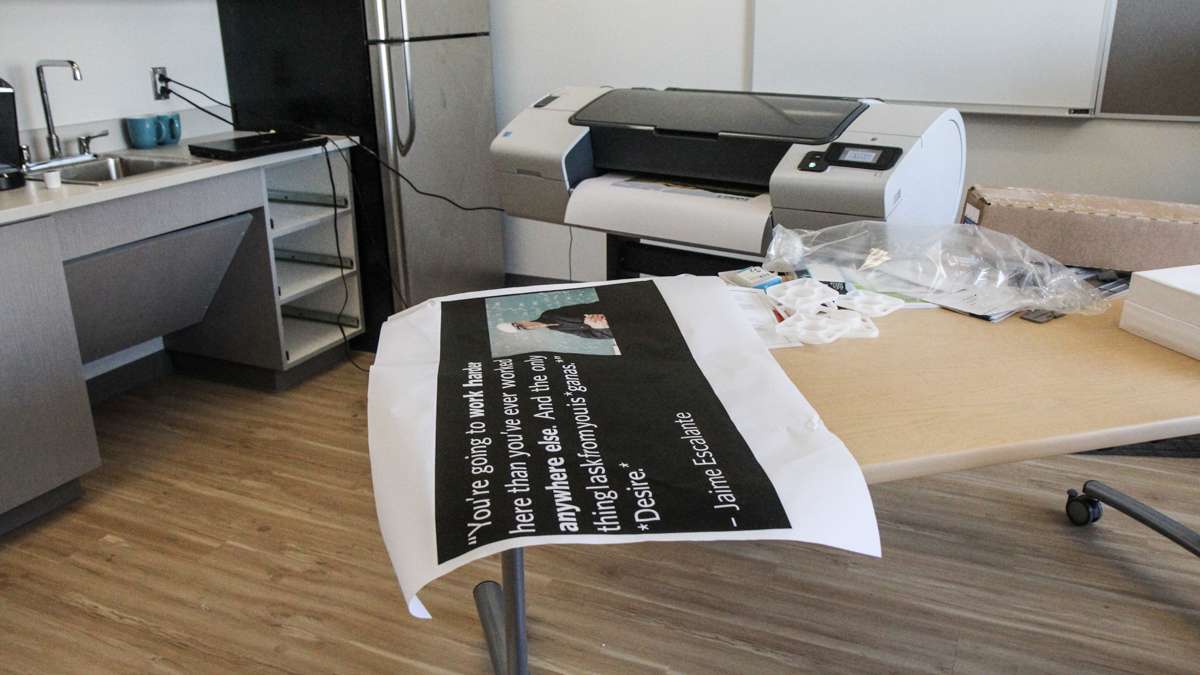
-

-
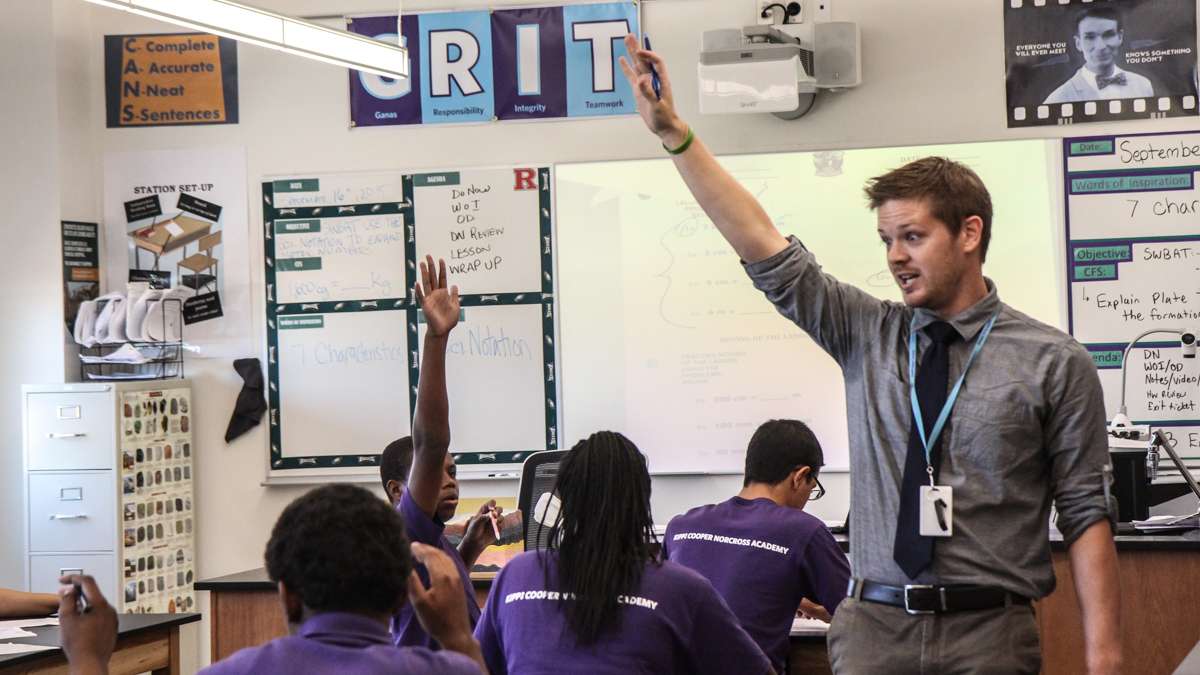
-
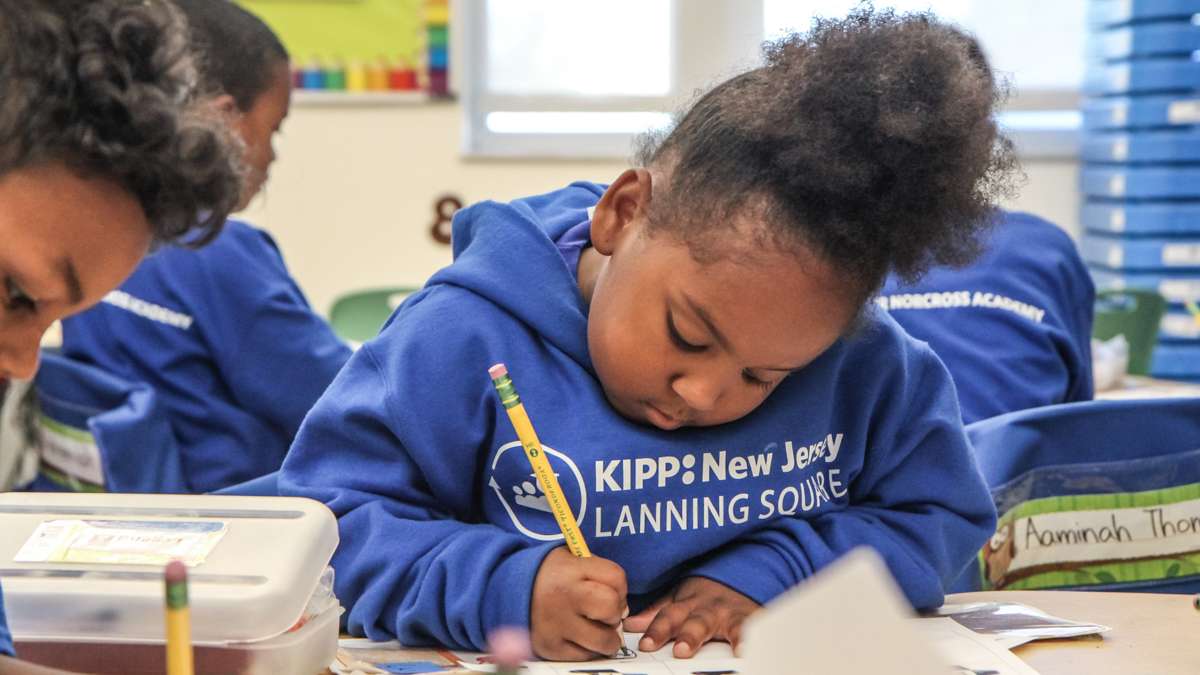
-

-
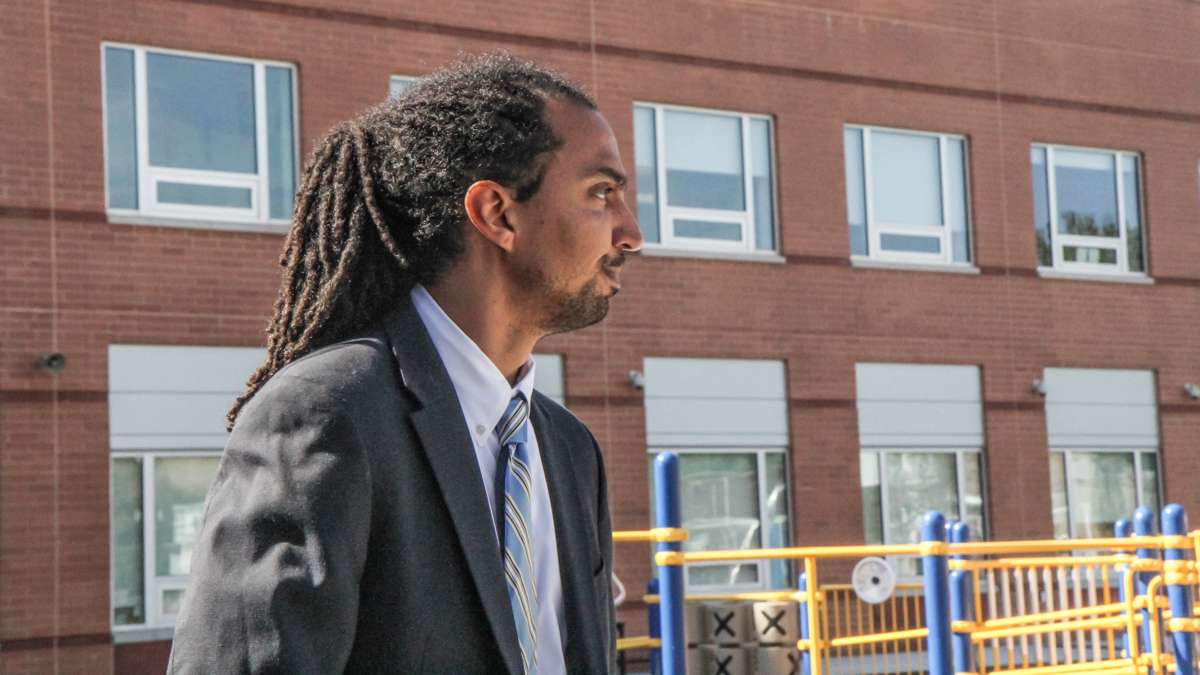
-
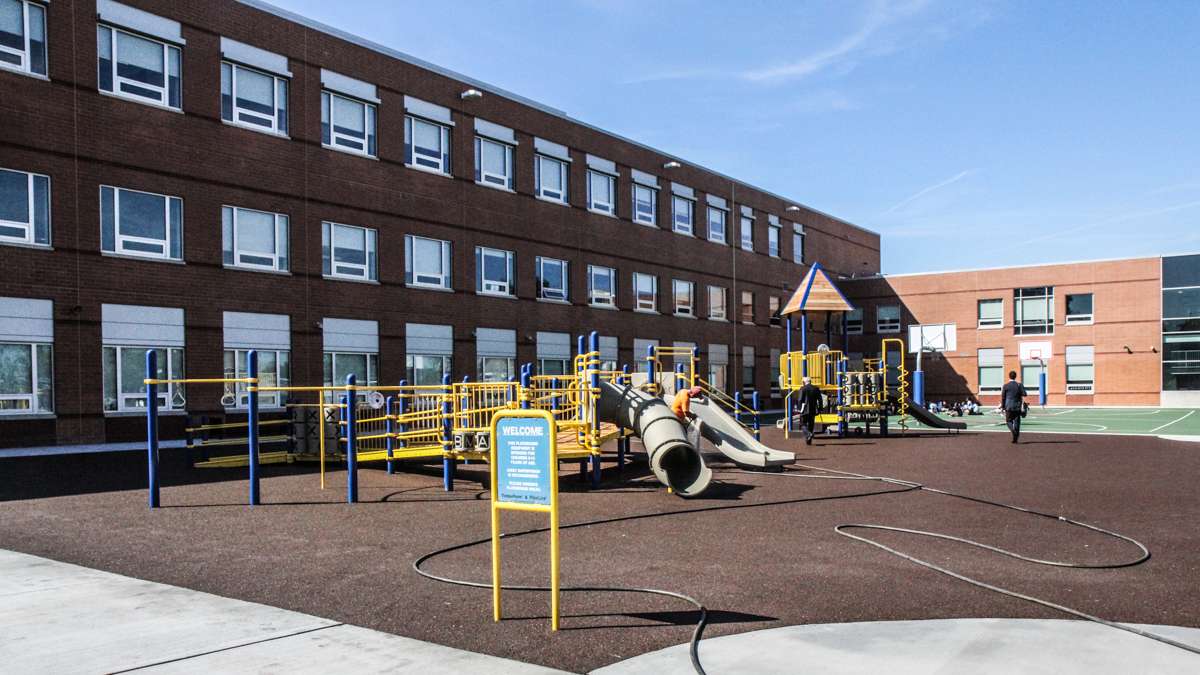
The recess yard at Kipp Cooper Norcross Academy in Camden. (Kimberly Paynter/WHYY)
-
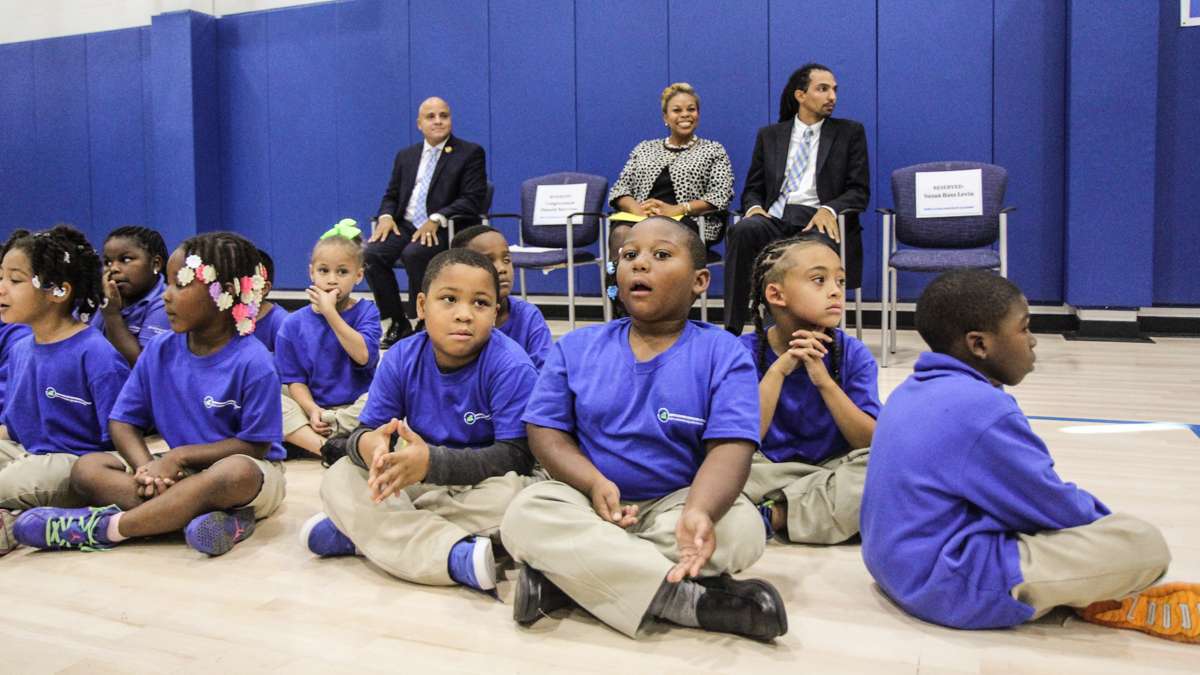
-

-
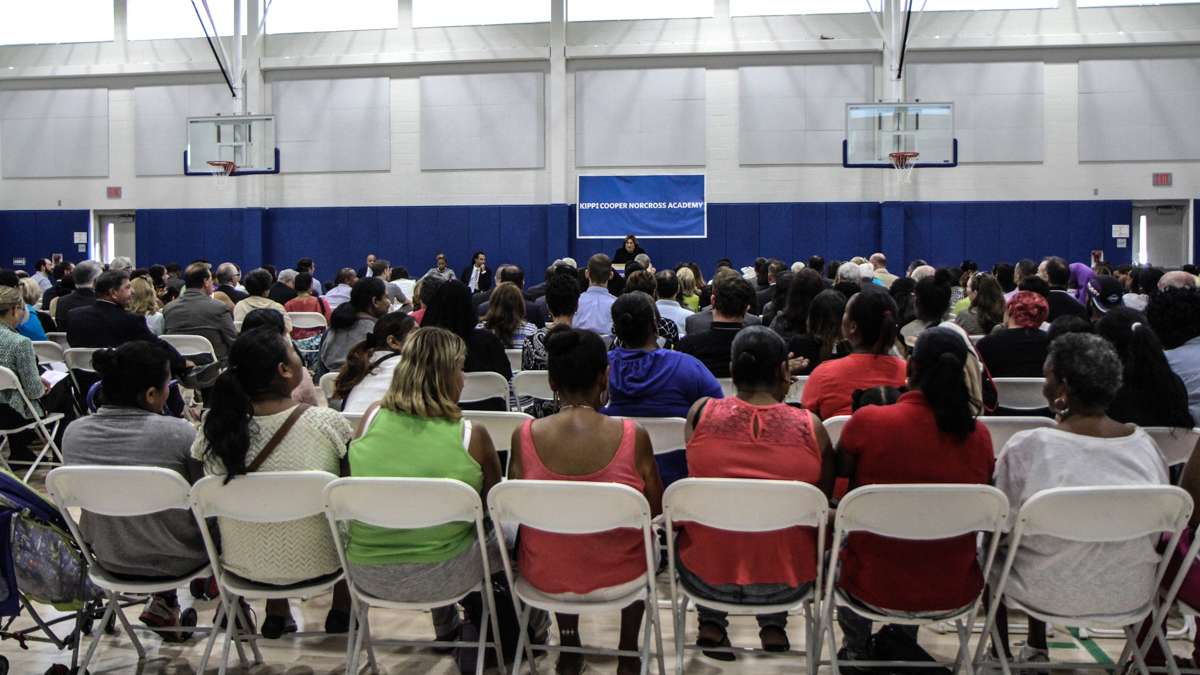
With 300 people filling a shiny new auditorium for speeches and cheers, the ribbon-cutting held yesterday at the new KIPP Cooper Norcross Academy in Camden at times seemed as much a precursor of the city’s educational future as it was a celebration of the opening of a school.
The event marked the opening of the first new “renaissance school” built under the Urban Hope Act of 2012 that brought the hybrid charter schools to New Jersey and, specifically, Camden.
The speakers were familiar names in Camden circles: Mayor Dana Redd; U.S. Rep. Donald Norcross, who authored the Urban Hope Act when he was a state senator; and Susan Bass Levin, president and CEO of Cooper Foundation.
Sitting in the front row was George Norcross III, chairman of Cooper University Health Care and the chief driver of the school’s rise from a vacant lot next to the hospital.
Students in purple KIPP Cooper Norcross T-shirts filed in and let out raucous cheers:
“You’ve got to Read, Baby, Read! You’ve got to Read, Baby, Read! The more you read, the more you know Knowledge is power, power is freedom and I want it!”
But the story was also as much as what happens next in the long-downtrodden city’s schools, and whether “renaissance schools” like KIPP Cooper, along with expanded charters elsewhere in the city, will become the face of a whole new school system – if they haven’t already.
George Norcross predicted “renaissance schools” and charters will end up serving a majority of students in the city, with the KIPP Cooper partnership hoping to open still another campus elsewhere in Camden under the new law.
“We will probably do a fourth catchment area,” Norcross said in a brief interview after the event yesterday. ‘We’re in site acquisition now.”
The approved “renaissance school” in Lanning Square — ultimately two or three buildings – will eventually serve nearly 3,000 students. In addition, Mastery Schools and Uncommon Schools, two other networks, have won approvals and are building their own new “renaissance schools” in the city.
Currently, the “renaissance schools,” coupled with charter schools, serve more than one-third of all students in the city.
“You are still going to have traditional public school existing in Camden, and we’re supporting those schools as well,” Norcross continued. “And ultimately, you’ll have district schools, KIPP schools, Mastery and Uncommon all competing against each other, which I think is very healthy.”
“Competition is good and healthy, and I think you’ll have that in the not-too-distant future,” he added.
But it hasn’t been without debate, and some legal challenge, over the extent that the schools can and will spread in the city. With one-third of its students already in charter schools, Camden joins the likes of New Orleans, Detroit, and Washington, D.C., with such large concentrations in nontraditional schools.
The state-run district’s superintendent, Paymon Rouhanifard, was also in attendance yesterday sitting in the front row, but he did not speak at the event.
Afterward, he acknowledged he was a little envious of the new $45 million, 110,000-square-foot building that went up for KIPP Cooper partnership, but said he was also pleased it was helping Camden students.
“Every kids deserves a building like that, no question,” the superintendent said.
But while he’s a strong supporter of the new schools, Rouhanifard was not so quick to endorse yet another “renaissance school” campus, saying the district at this time had no plans for opening up the process for another application in time for the January deadline under the law.
He said further expansion could just as easily happen by extending the existing programs. “For us, this is a year-to-year process where we will see the demand and results,” the superintendent said.
Still, Rouhanifard said the new schools are contributing to a sense of urgency for the district to improve its own schools, even in the face of greater challenges. He said plans to renovate Camden High School with state funds, for instance, could take three more years to complete, while KIPP Cooper went up in a year.
“It’s the difference between swimming against the current and swimming with the current,” he said. “There is absolutely the same urgency, but progress in the district comes more slowly.”
There’s little doubt that demand for the new schools is there, officials said, with 360 students already on KIPP Cooper’s waiting list. The school, which operated last year in temporary space, is this year serving a total of 700 students in kindergarten, first grade, and fifth through eighth grades. The district is separately using the building for grades 2-4.
And school officials said the results have matched the demand, with the first year’s students showing strong gains in assessments that raised from the 25th to the 64th percentile nationwide.
“I want to point out, our kids rocked, they absolutely did,” said Drew Martin, executive director of KIPP Cooper Norcross Academy, to loud applause.
“It wasn’t just the kids, but they had incredible parents who showed them the way, they have incredible teachers who show up at 6 o’clock every morning,” Martin said. “It is an incredible amount of work to get our kids to where they are, and you have to recognize that.”
One conspicuous but not terribly surprising absence from the ceremony was the man who signed the Urban Hope Act and came to Camden several times to promote it: Gov. Chris Christie, who was in California for the second Republican presidential debate. His administration was represented by Assistant Education Commissioner Evo Popoff.
Donald Norcross, the Democratic congressman, gave Christie credit for helping to make the law a reality.
“At any point this could have stopped, but Governor Christie showed the courage and understanding to what we faced,” Norcross said. “Listen, we don’t agree on everything, but at the end of the day, he agreed this was an important issue.”
_________________________________________________________
NJ Spotlight, an independent online news service on issues critical to New Jersey, makes its in-depth reporting available to NewsWorks.
WHYY is your source for fact-based, in-depth journalism and information. As a nonprofit organization, we rely on financial support from readers like you. Please give today.


